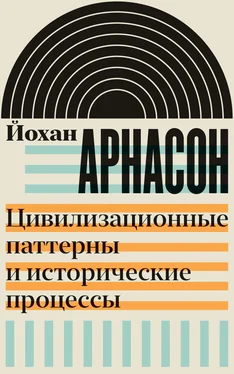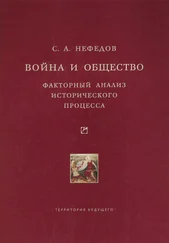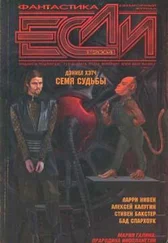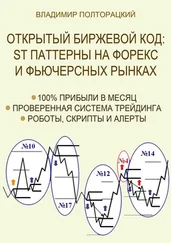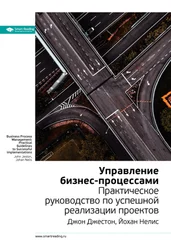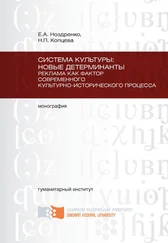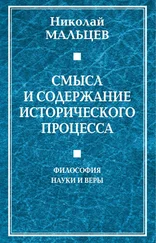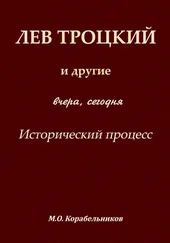Blokker P., Delanty G. An Interview with Johann P. Arnason: Critical Theory, Modernity, Civilizations and Democracy // European Journal of Social Theory. 2011. Vol. 14. № 1. P. 120.
Smith J. Debating Civilisations: Interrogating Civilisational Analysis in a Global Age. Manchester: Manchester University Press, 2017. P. 28–29.
Knöbl W. Contingency and Modernity in the Thought of J. P. Arnason // European Journal of Social Theory. 2011. Vol. 14. № 1. P. 15.
Йоас Х., Кнёбль В. Социальная теория. Двадцать вводных лекций. СПб.: Алетейя, 2013. С. 787.
Arnason J. The Future that Failed: Origins and Destinies of the Soviet Model. London: Routledge, 1993. P. 18.
Arnason J. Social Theory and Japanese Experience: The Dual Civilization. London: Kegan Paul, 1997; Idem . The Peripheral Centre: Essays on Japanese History and Civilization. Melbourne: Trans Pacific Press, 2002.
Арнасон Й. Переосмысление восточноазиатского модерна // Социологические исследования. 2016. № 1. С. 191–200.
Arnason J. Civilizations in Dispute: Historical Questions and Theoretical Traditions. Leiden: Brill, 2003; Arnason J., Eisenstadt S., Wittrock B. (Eds.) Axial Civilizations and World History. Leiden: Brill, 2005.
Arnason J., Raaflaub K. (Eds.) The Roman Empire in Context: Comparative and Historical Perspectives. Malden: Blackwell, 2011; Arnason J., Wittrock B. (Eds.) Nordic Paths to Modernity. New York: Berghahn Books, 2012; Arnason J., Raaflaub K., Wagner P. (Eds.) The Greek Polis and the Origins of Democracy. Malden: Blackwell, 2013; Arnason J., Hrubec M. (Eds.) Social Transformations and Revolutions: Reflections and Analyses. Edinburgh: Edinburgh University Press, 2016.
Браславский Р. Г. Цивилизационная перспектива в социологическом анализе современных обществ // Журнал социологии и социальной антропологии. 2012. № 6. С. 30–49; Масловский М. В. Цивилизационный анализ в современной исторической социологии и российские политические трансформации // Мир России. 2012. № 3. С. 119–132; Прозорова Ю. Постсоветские трансформации в России: цивилизационно-аналитический подход // Неприкосновенный запас: дебаты о политике и культуре. 2014. № 6. С. 56–67; Титаренко Л. Г. Концепция множественности форм модернов в исторической социологии Й. П. Арнасона // Социологические исследования. 2016. № 1. С. 186–190.
Fitzpatrick S. Introduction // Fitzpatrick S. (Ed.) Stalinism: New Directions. London: Routledge, 2000. P. 11.
David-Fox M. Multiple Modernities versus Neo-Traditionalism // Jahrbücher für Geschichte Osteuropas. 2006. Vol. 54. № 4. P. 539.
Дэвид-Фокс М. Модерность в России и СССР: отсутствующая, общая, альтернативная или переплетенная? // Новое литературное обозрение. 2016. № 4. С. 38–39.
Sakwa R. The Soviet Collapse: Contradictions and Neo-Modernization // Journal of Eurasian Studies. 2013. Vol. 4. № 1. P. 75.
Ekiert G. Three Generations of Research on Post-Communist Politics – a Sketch // East European Politics and Societies. 2015. Vol. 29. № 2. P. 323–327.
Kotkin S., Beissinger M. The Historical Legacies of Communism: an Empirical Agenda // Beissinger M., Kotkin S. (Eds.) Historical Legacies of Communism in Russia and Eastern Europe. Cambridge: Cambridge University Press, 2014. P. 8–9.
Laruelle M. Russia as an Anti-liberal European Civilization // Kolstø P., Blakkisrud H. (Eds.) The New Russian Nationalism: Imperialism, Ethnicity and Authoritarianism, 2000–2015. Edinburgh: Edinburgh University Press, 2016. P. 278.
Sakwa R. Russia against the Rest: The Post-Cold War Crisis of the World Order. Cambridge: Cambridge University Press, 2017. P. 7.
Maslovskiy M. Russia against Europe: A Clash of Interpretations of Modernity? // European Journal of Social Theory. 2019. Vol. 22. № 4. P. 533–547.
Конец ознакомительного отрывка
Купить книгу
